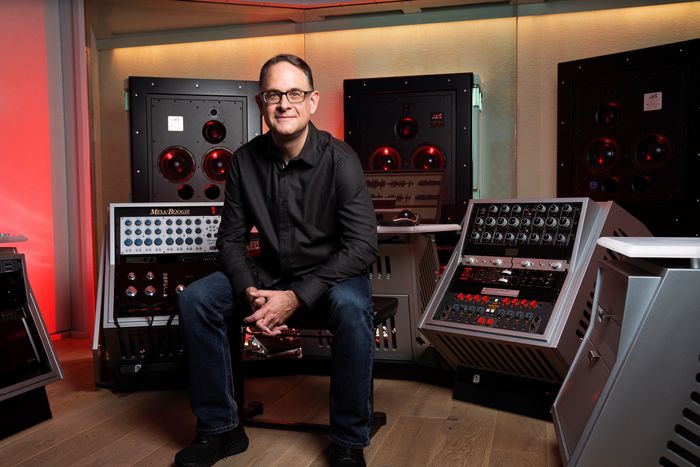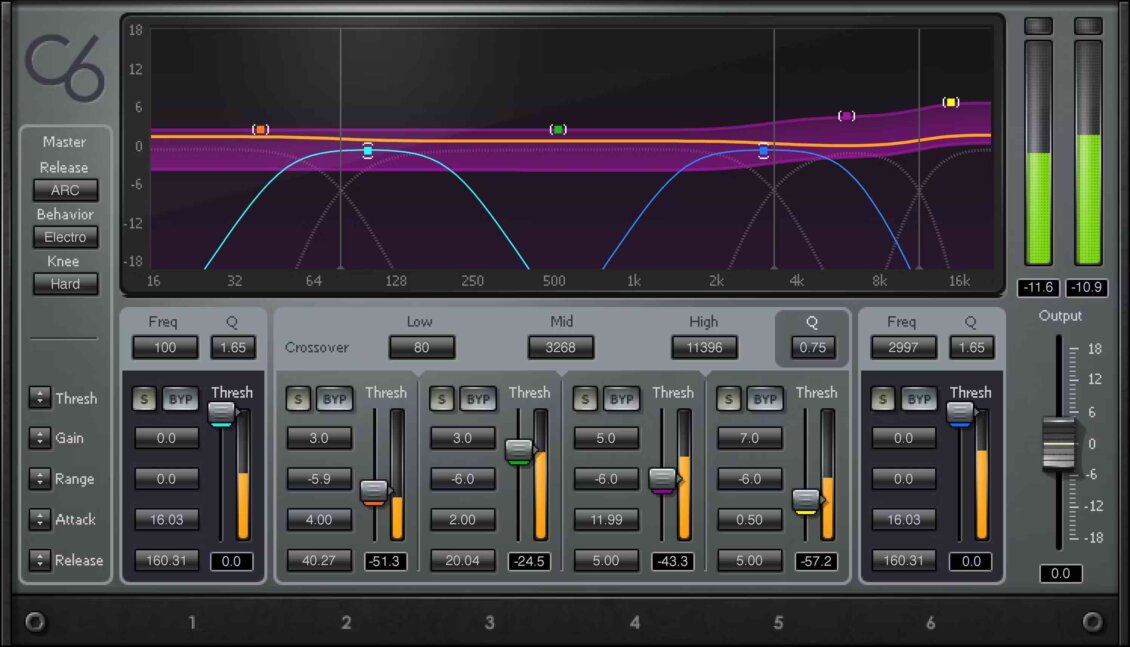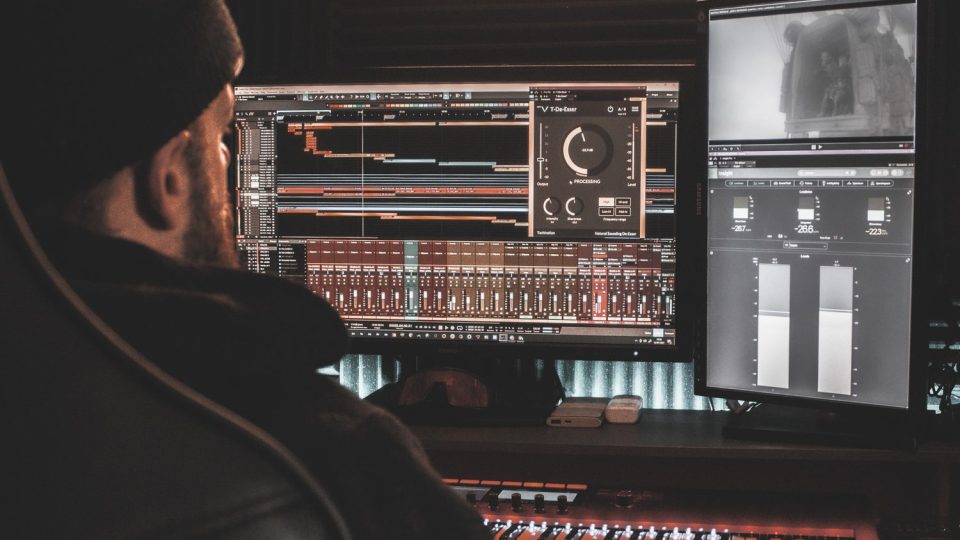Mastering Your Music: A Practical Guide
In the realm of production, mastering your music well represents a critical juncture that separates good tracks from exceptional ones. Mastering stands as the final frontier and a gateway to professional-grade sound.
Picture this: You’ve spent countless hours crafting melodies, layering beats, and tweaking arrangements. compositionally you’re there, yet it lacks the finesse that will enable it to sit comfortably amongst your peer’s tracks. This is where mastering steps in.
Mastering, often underestimated in its importance, is the process that polishes and refines your tracks, ensuring they sound their absolute best across various playback systems. Without this final touch, your creation might not translate optimally to listeners’ ears. Mastering bridges the gap between your final mix and the standard expected in today’s competitive music industry.
So, let’s delve deeper into the world of mastering, understanding its intricacies, the options available, and the empowering journey of mastering your music yourself.
What is Mastering
At its core, mastering is the ultimate refinement stage in music production. It’s the meticulous process of fine-tuning and preparing your music for distribution across various platforms. This stage brings out the best in your tracks, ensuring they sound consistent, balanced, and optimized for different listening environments.
Mastering serves as the last opportunity to enhance the audio quality of your music. It fine-tunes elements such as EQ, dynamics, stereo width, and overall tonal balance, ensuring a cohesive and professional sound.
It also allows for the addressing of imperfections in the mix. By making precise corrective adjustments, mastering can elevate the sonic balance and characteristics of your tracks. You can also use mastering to inject or even reduce energy in a track.
And finally one of Mastering’s most essential functions is to optimise the loudness of your tracks to match industry standards. This must be done without sacrificing dynamics. You will need to consider mastering your tracks for distribution across various platforms such as streaming services, CDs, vinyl, and more.
Mastering Options
Using a Mastering Engineer
Engaging a professional mastering engineer offers a wealth of benefits. They bring specialized expertise, refined ears, and often top-tier equipment to the table. Their tailored approach ensures your tracks receive personalized attention, resulting in a polished final product. However, this route may come with a financial investment and a reliance on the engineer’s availability. If you are looking to employ the services of a mastering engineer make sure you do your research. It is always good to go on recommendations from producers who’s work you admire.

AI Mastering
AI-powered mastering services have gained traction for their convenience. They offer quick turnarounds and cost-effectiveness. However, their limitations lie in the absence of human creativity and adaptability. While suitable for certain genres or tracks, they might not offer the finesse and personal touch of a human touch.
DIY Mastering
For many producers, the allure of DIY mastering lies in the control it offers. It allows you to experiment, learn, and shape your tracks according to your vision. However, this path demands dedication to mastering the necessary tools and techniques, which can involve a learning curve.
In the upcoming segments, we’ll explore the world of DIY mastering in detail, uncovering the tools, techniques, and practical tips that empower producers to master their music themselves within the confines of their DAWs.
DIY Mastering: Tools and Techniques
Overview of DIY Mastering
Delving into the realm of DIY mastering demands not only a discerning well-trained ear but also an understanding of the tools within your Digital Audio Workstation (DAW). For the majority of producers working from home studios these tools represent your arsenal for sculpting and refining your tracks to achieve professional-grade sound.
Key Tools for Mastering your Music
- EQ (Equalization): An indispensable tool for shaping tonal balance by adjusting frequencies. Mastering EQs allows precise alterations to the full frequency range, crucial for achieving clarity and balance in your mix.
- Multiband Compression: Offering nuanced control, this tool divides your audio spectrum into bands, enabling you to manage dynamics separately for various frequency ranges. It’s instrumental in controlling transient peaks and ensuring a consistent sound.

- Limiter: Critical for preventing signal peaks from exceeding a predefined level, limiters maintain a consistent volume across your track.
- Exciter: Enhancing harmonic content, exciters inject vitality into your mix by adding subtle overtones, enriching dull sounds, and imparting a sense of clarity and sheen.
- Stereo Widening: Expanding the stereo field beyond its original dimensions, this tool provides depth and spatial width, creating a more immersive listening experience.
- De-Esser: Primarily used for taming harsh sibilance in vocals or high-frequency content, de-essers maintain clarity without compromising on the natural tone.
- Metering Tools: These aids provide detailed information on levels, frequencies, and dynamics, guiding your adjustments with precision and accuracy. Mastering tools are crucial for gauging the correct output volume levels measured in LUFS. For Rock Pop the recommended output levels are between -9 LUFS and -14 LUFS.
For more detailed information on these tools and how to use them for mastering purposes check out this Blog post.
Most of these processing tools are available as stock plugins within your DAW. The following video from Sean Divine demonstrates how the stock plugins found in Logic Pro X can be used to master a contemporary pop song.
While stock DAW plugins offer basic effective functionality, dedicated mastering plugins like Izotope Ozone and Waves Abbey Road TG Mastering Chain provide a wider array of advanced features. These more specialist mastering tools can make the process of achieving a great master both quicker and easier. But remember, whatever plugins you use the most important aspect is always going to be your ear and ability to listen critically.
8 Top Tips for Mastering your Music
- Listening Environment Calibration: Invest in acoustic treatment and proper monitoring systems to ensure an accurate representation of your mix. Room calibration tools and acoustic treatment significantly enhance your listening environment’s neutrality. Good quality monitor speakers are essential. In order to allow effective and accurate decision making they should not colour the sound in any way. Some monitors even offer a facility to analyse the acoustic properties of your room and make frequency adjustments to the output according to the results. Some mastering engineers also like to be able to switch to some small domestic speakers to emulate the sound of a radio or mobile device.
- DAW Template Customization: Craft a dedicated mastering template within your DAW, preloaded with your preferred plugins and signal chain. This tailored template streamlines your workflow, saving time and maintaining consistency across projects. Your template should also allow for the original mix to be played without any additional processing for comparison purposes.
- A/B Comparisons: Regularly compare your tracks against professionally mastered material to benchmark tonal balance, dynamic range, and overall quality. This practice guides your mastering decisions toward achieving industry-standard sound. Some EQ’s offer EQ matching facilities where you can apply the EQ curve of a similar mixed and mastered recording to your recording. EQ matching like this may not always work for your track but it could provide valuable clues as to the direction you need to travel.
- Tool Precision: Mastery of each tool is essential. Use EQ and compression judiciously, focusing on subtle enhancements rather than drastic alterations. Preserving the natural dynamics while refining the sonic characteristics is key.
- Frequency Balance Emphasis: Pay attention to frequency distribution, ensuring no specific range dominates others. Strive for an even balance across the spectrum, creating a cohesive and engaging sonic landscape. Again, EQ matching can offer clues as to the ideal tonal balance for the given genre you are mastering.
- Dynamic Integrity: Embrace dynamic range in your music, avoiding excessive compression. Let the music breathe; dynamics lend character and emotion to the mix. Compression should be used as a form of control at the mastering stage rather than as an effect aimed at shaping the character of your peaks.
- Ear Fatigue Prevention: One of the most crucial tips when mastering your music is to take regular breaks. This is to both avoid ear fatigue and offer a fresh perspective. A Fresh set of ears ensures accurate judgments and maintains objectivity.

- Reference Tracks: We have already alluded to this but it’s vital to utilize professionally mixed and mastered reference tracks. These benchmarks guide your decisions, helping you achieve a more competitive and industry-standard sound. It’s also a great idea to bounce out your master bookmarked by 2 similar well-mixed and mastered reference tracks. Then play your track housed between your two references on a variety of different systems. Check on your car stereo, domestic hi-fi system, ear buds etc.
Conclusion
In conclusion, mastering your music yourself can be immensely rewarding. The significance of mastering your music well cannot be overstated—it’s the final step that transforms a good track into an outstanding one. For producers working tirelessly within their DAWs, mastering represents both a challenge and an opportunity to elevate their music to professional standards.
DIY mastering allows for creative control, a deeper connection to your music, and the ability to refine your skills over time. It’s an ongoing journey of learning and growth, where each track mastered contributes to your expertise.
While mastering your music is empowering, it’s essential to acknowledge its complexities. Aspiring producers should not hesitate to seek professional mastering assistance when needed. The main objective is to represent your music in the best possible light. So if you’ve struggled to achieve a pleasing master don’t be afraid to call upon the services of an expert. The guidance of a seasoned mastering engineer can even help to enhance your skills in the long run.
Remember – RouteNote Create subscriptions start from as little as $2.99. You also get 10 FREE credits to spend on samples along with access to our FREE sample pack bundle when you sign-up
